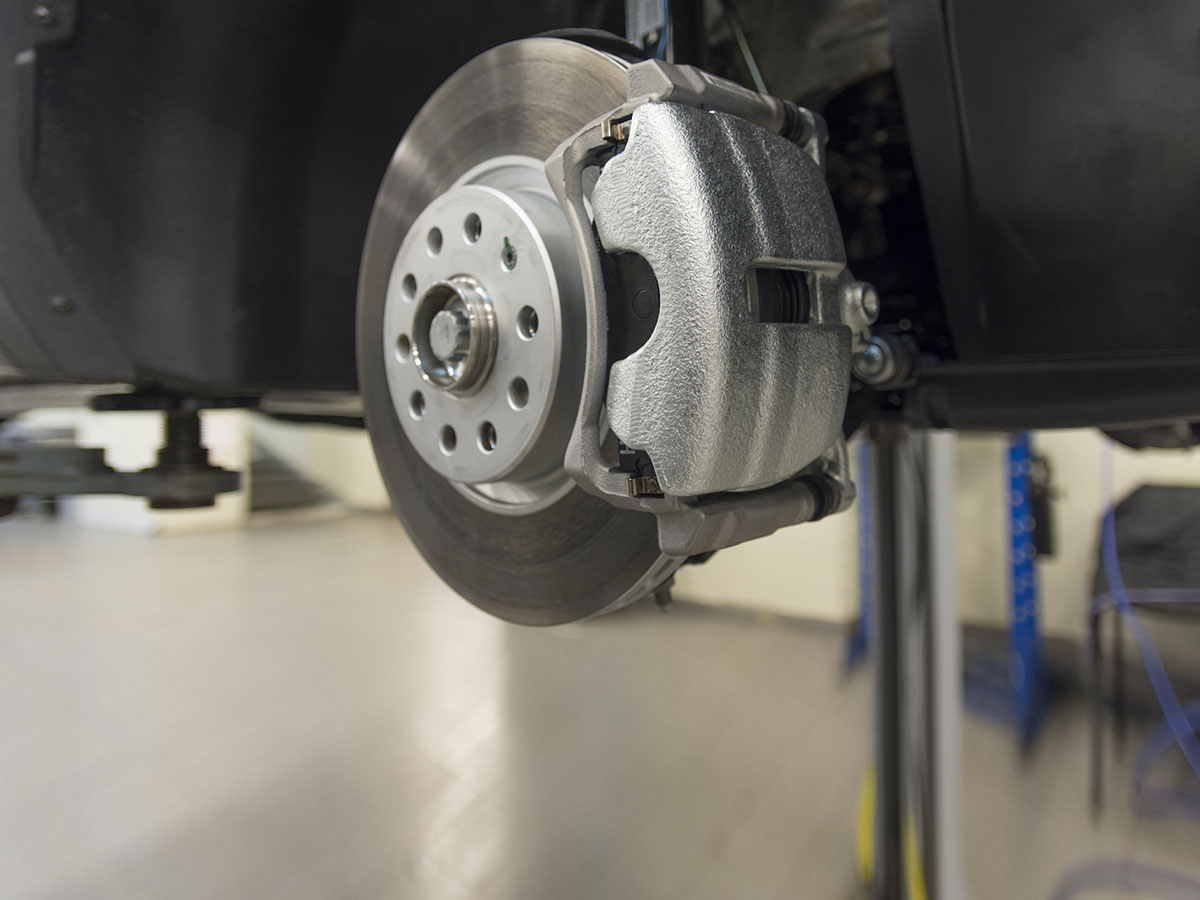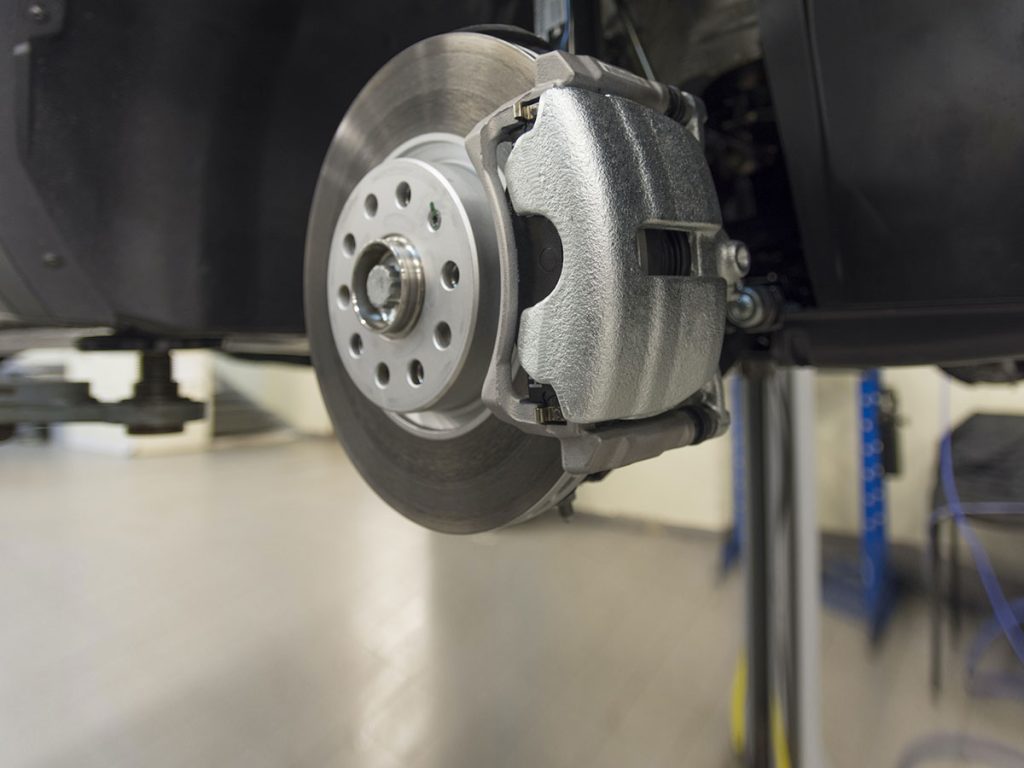
Well-maintained brakes are an essential part of your car’s safety features. They ensure that you come to a swift stop when you hit the brake pedal and can make all the difference between you either having or avoiding an accident. Changing your brake pads at the right time is one of the most important brake maintenance tasks you can perform. Here at Keith Pierson Toyota in Jacksonville, Florida, our service team has extensive experience with brake pad replacements and have put together some tips for you to follow.
How Often Do the Toyota Camry’s Brake Pads Need Changing?

Most brake pads will need changing somewhere between 30,000 and 70,000 miles of driving. The wide disparity is because the way you drive affects how long your pads will last. For instance, if you spend a lot of time on city roads with heavy traffic, your brake pads will wear out more quickly. That’s because you’ll be braking more often in stop-and-go traffic.
In contrast, your pads will last longer if the majority of your driving time is spent cruising on the highway. Many drivers will notice that the life span of their brake pads fall somewhere between these two extremes.
Your brake pads generally wear down at the same pace on both sides of your vehicle. If you have a front-wheel-drive Camry, you may notice that the pads on the front wheels wear down more quickly than those on the rear wheels. All-wheel-drive Camrys may be different.
If you’ve lost track of your maintenance schedule, you can usually look out for a few warning signs to figure out when you’re due for a replacement. For example, you may hear a squeaking or screeching noise.
If you’d like more advice on when to change your brake pads, you should consult your Camry owner’s manual. This manual will provide you with a maintenance schedule that you should follow, including a recommendation on when to replace your pads.
The recommendation may be influenced by such factors as whether your Camry has front-wheel or all-wheel drive and the type of engine under the hood. If you can’t find your owner’s manual, our Toyota-certified technicians here at Keith Pierson in Jacksonville will be happy to share their expert advice on brake maintenance.
Why Is It Important to Change Your Camry’s Brake Pads?
Brake pads wear down over time with use, and they’ll become less effective if you don’t change them on time. If your pads are wearing thin, you may find that you have to apply more pressure on the brake pedal before you get a response, which can increase the distance you’ll need to bring your Camry to a stop. This can be dangerous not only for yourself but also for all motorists around you.
Failing to change your pads on time can also cause severe damage to other brake components. For example, if you let your pads wear through completely, your rotors could become deformed. This may happen if the metal rotors scrape directly against the brake calipers once there’s no pad left for protection. Your calipers could also become damaged and require replacing. Extensive brake repairs will be significantly more expensive than a new set of brake pads purchased at the right time.
Other Camry Brake Maintenance Issues
In addition to getting your brake pads changed, there are several other brake maintenance tasks that you may have to get a service technician to take care of. Brakes are operated by fluid that moves through your brake lines to create the necessary pressure to apply the brakes when you hit the pedal. The fluid can get contaminated, and you may need to flush it. You may also need to replace your lines if they get damaged or wear through.
If your brakes require flushing, you’ll have to remove all of the fluid. You’ll then have to seal the system before you can add new fluid. This is necessary to prevent air getting into your braking system, which can reduce your car’s braking performance.
Poor car maintenance may also result in you having to repair or replace your rotors. In addition, you may need to repair your calipers if they become damaged due to worn-out pads and excessive metal-on-metal friction with your rotors.
Why Choose Keith Pierson Toyota for Your Camry Brake Maintenance
If your brake pads need replacing or you need another brake-related issue taken care of, we’re here to help. At Keith Pierson Toyota’s Jacksonville service center, our team of auto mechanics change Camry brakes on a regular basis for our loyal customers. You can reserve your maintenance appointment using our online booking tool and purchase new brake pads from our well-stocked parts department. Alternatively, you can swing by our dealership during our opening hours and let us take care of the rest.
While you’re visiting our service center, we can help you with a range of additional maintenance services. For starters, we’ll carry out a multipoint inspection to check whether there are any issues with your Camry. The inspection allows our technician to identify any problems before they get serious so we can carry out preventative maintenance. Common maintenance tasks we handle include oil changes, tire rotations, fluid top-ups, and battery tests.
Before you stop by our service center with your Camry, don’t forget to look at our service specials. These incentives may include discounted prices for brake pads or the labor cost for installing them. Our deals change on a regular basis, so don’t forget to check back often in the lead-up to your service appointment. These incentives are a great way to save money while keeping your Camry well maintained.
If you have any additional questions or would like to book an appointment at our service center, don’t hesitate to contact us today. Our service center experts are standing by to take your call or chat to you in person if you choose to swing by. Once your car is in our care, we’ll get to work replacing your brake pads and doing anything else that’s necessary so that you can get back on the road as soon as possible.






